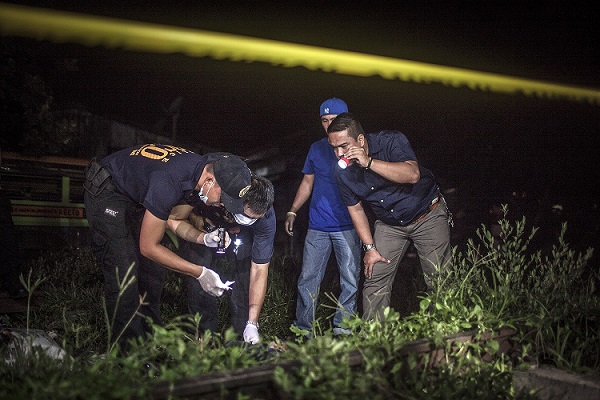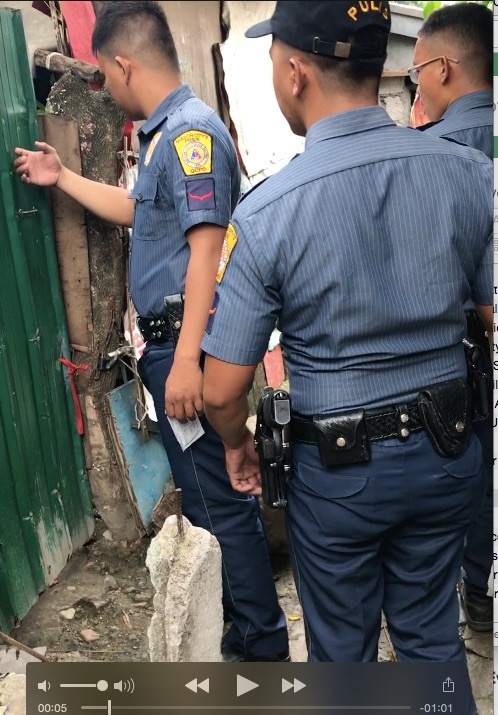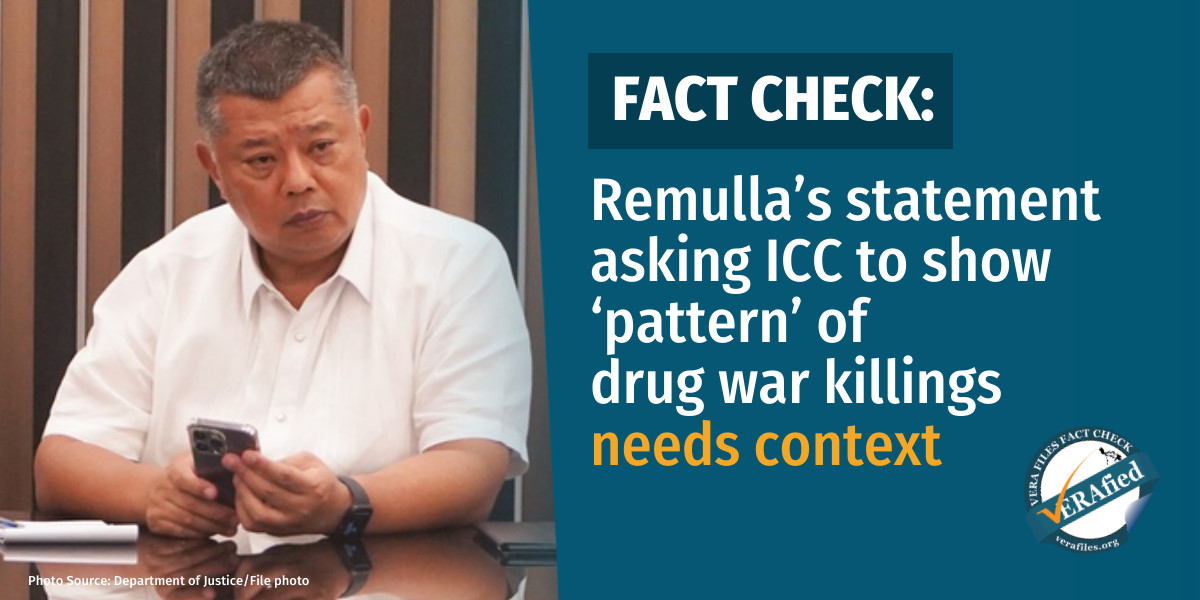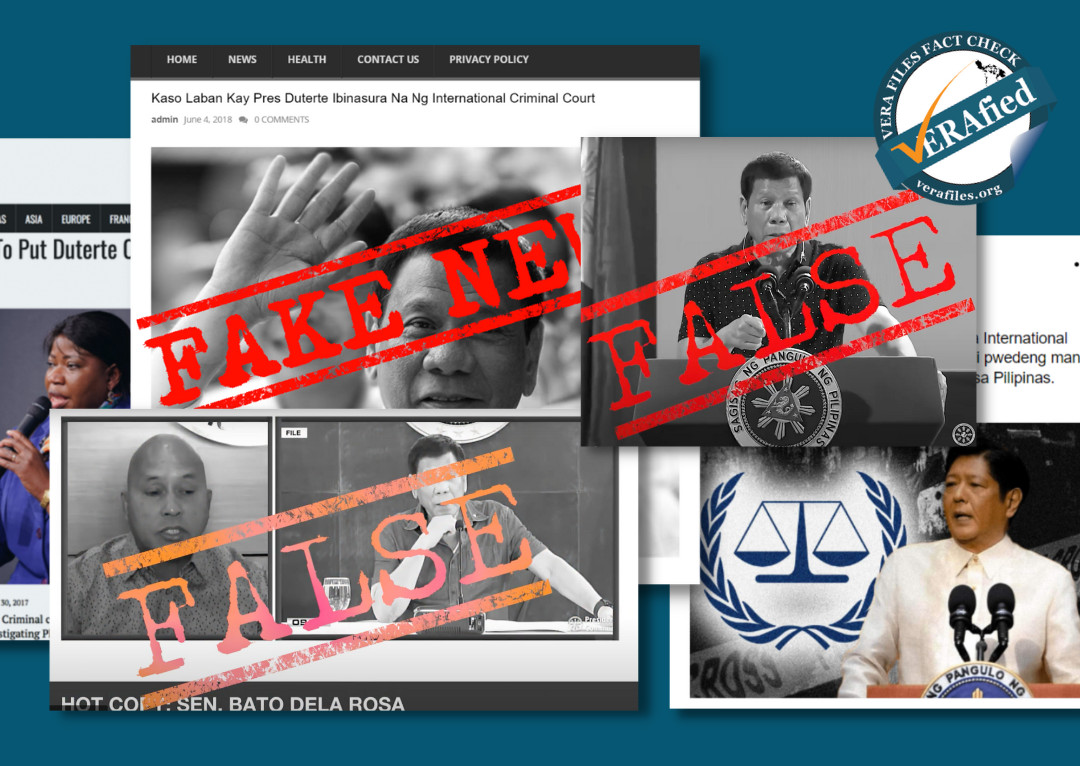He played dead to save his life.
Having been shot in the chest, Efren Morillo had to cover his wound, slide down a ravine, cross a stream, climb a hill and crawl to the nearest highway to get help.
This was how 28-year-old Morillo, the lone survivor of an Oplan Tokhang operation in Payatas, recounted his experience in the hands of the police August last year.
The four others who were with him were brutally killed.
He is now the vital witness to the very first legal action filed by a civilian against the government’s anti-illegal drug campaign that has seen over 6,000 deaths in barely six months.
Morillo, along with the family of the slain victims, are seeking protection from the alleged continued intimidation and harassment of the Quezon City Police Department (QCPD) officers, through a petition filed by law firm Center for International Law (CenterLaw) before the Supreme Court Thursday.
They are seeking the issuance of a writ of amparo, a remedy available to any person whose life and security are violated or threatened. It can give protection to victims of extralegal killings, provided by a government agency or any private institution that can secure their safety.
Morillo filed the petition against Philippine National Police Chief Ronald dela Rosa, Senior Quezon City Police Department Director Superintendent Guillermo Lorenzo Eleazar, Station 6 Commander Superintendent Lito Patay, and his men Senior Inspector Emil Garcia, Police Officer Allan Formilleza and PO1s James Aggarao and Melchor Navisaga.
Morillo’s complaint begins from the quiet afternoon of Aug. 21, 2016, when officers of the QCPD allegedly“shot dead, execution-style” four men in a Payatas makeshift home.
Marcelo Daa Jr, Raffy Gabo, Anthony Comendo and Jessie Cule, aged 22 to 36, who earned a living by scavenging garbage at the dumpsite, were accused of being drug addicts.
Morillo witnessed the incident because he was there to collect debt from Daa Jr., the owner of the house.
In his affidavit, Morillo recounted how Daa Jr. and his friends were playing billiards while passing time until their evening shift, when five armed men and two women in civilian clothes arrived without warning, pretending, jokingly, to look for “Pokemon monsters” inside the house.
The armed men, who turned out to be QCPD officers Garcia, Formilleza, Aggarao and Navisaga, pulled out firearms and used electric wires to handcuff the victims, including Morillo, and made them sit side by side on a bench at the back of the house.
The whole time, the police accused the five of being involved in illegal drugs. Morillo recounted how the police emerged from the house carrying a silver foil and a lighter in the shape of a gun.
Surviving police attack
Later, Morillo recalled being brought to a room along with Daa Jr. It was connected to the house, but its two walls were missing and one opening led to a ravine about three meters away.
Without warning, the police shot Morillo in the chest. He fell to the ground bleeding, but did not lose consciousness. The officer then shot Daa twice, the second time on the head.
Lying beside Daa, Morillo played dead. He crawled out of the opening and onto the edge of the ravine, and found his way to the nearest highway where he sought medical help.
At the back of the house, the police made Gabo, Comendo, and Cule kneel on the ground and shot them to death. Cule was the last of the three to be killed. Hugging the legs of one of the armed men, he begged to be spared, but the police still shot him on the nape, based on an eyewitness account of a 14-year-old.
And, as if nothing happened, the police officers stayed a few more hours inside Daa’s home, and ate at the billiard table using the family’s plates and utensils, helping themselves to food and drinks from a sari-sari store owned by the family of one of the victims.
Morillo recuperated at the East Avenue Medical Center. But during the time he was confined, QCPD police kept him captive in the hospital room.
He is now under the custody of the Commission on Human Rights.
Continued surveillance, fabricated reports
Five months after the killings, residents of Group 9, Area B, Payatas, Quezon City claim the police involved continue to sow fear in their community, in an attempt to silence those who had witnessed the crime, according to the petition.
During Gabo’s wake, the family of one of the victims reported they were disturbed by the presence of suspicious individuals lurking around their house.
The QCPD officers who were involved in the killing were spotted in the area on Oct. 27, to take videos of the Daa residence, and on Nov. 22, allegedly to ask around for possible illegal drug activities.
The QCPD maintained the five men were drug suspects, a claim belied by the witnesses of the incident.
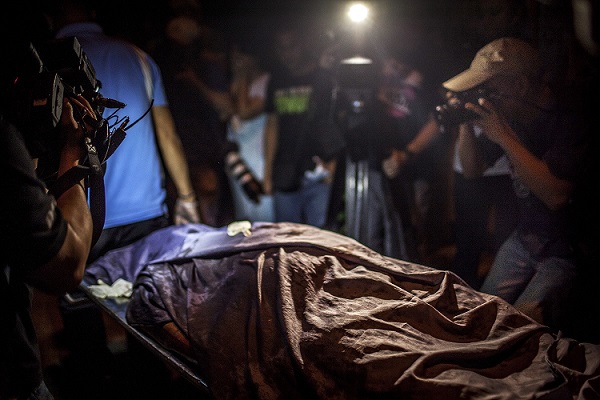
The Duterte administration’s drug war has resulted in over 6,000 deaths in six months. Photo by Luis Liwanag.
Based on police reports, the incident was “a chance encounter” during an Oplan Tokhang operation. In media interviews, however, the police officers said they caught the victims holding a drug session.
Aside from claiming the victims fired at them first, the police officers had also allegedly altered the location of the incident in the death certificates of the victims.
Instead of reporting that it occurred in Brgy. Payatas, where Daa’s house is, the police recorded “Group 9, Brgy. Bagong Silangan, Quezon City” in the police blotter.
The petition noted “the motive for the fabrication is obvious,” since Brgy. Payatas was not under the police officers in question’s operational jurisdiction.
Suspend ‘tokhang’
Besides pleading for the protection of the families of the slain victims, the petition is seeking the suspension Oplan Tokhang operations in the community and in all areas under the jurisdiction of the QCPD Station 6 while the case is ongoing.
In addition, it requested the SC to direct the PNP to produce and also allow the inspection and copying or photographing of intelligence and surveillance reports, police blotters, coordination, video, and other official and unofficial documents pertaining to the Aug. 21 police operation.
Oplan Tokhang, the petitioners said, is “a direct violation of the right to liberty and security, and under the constitutional framework, the rights of the accused and the right against unreasonable searches and seizures.”
Tokhang is a portmanteau of Visayan words “toktok” and “hangyo,” which mean to knock and plead. It involves the conduct of house-to-house visitations to persuade suspected illegal drug personalities to stop their illegal drug activities.
The petitioners claim that Oplan Tokhang “puts incredible pressure on police officials to perform above par” on pain of being relieved from their post, which drives them to “ignore protocol and breeds them in contempt of law.”
